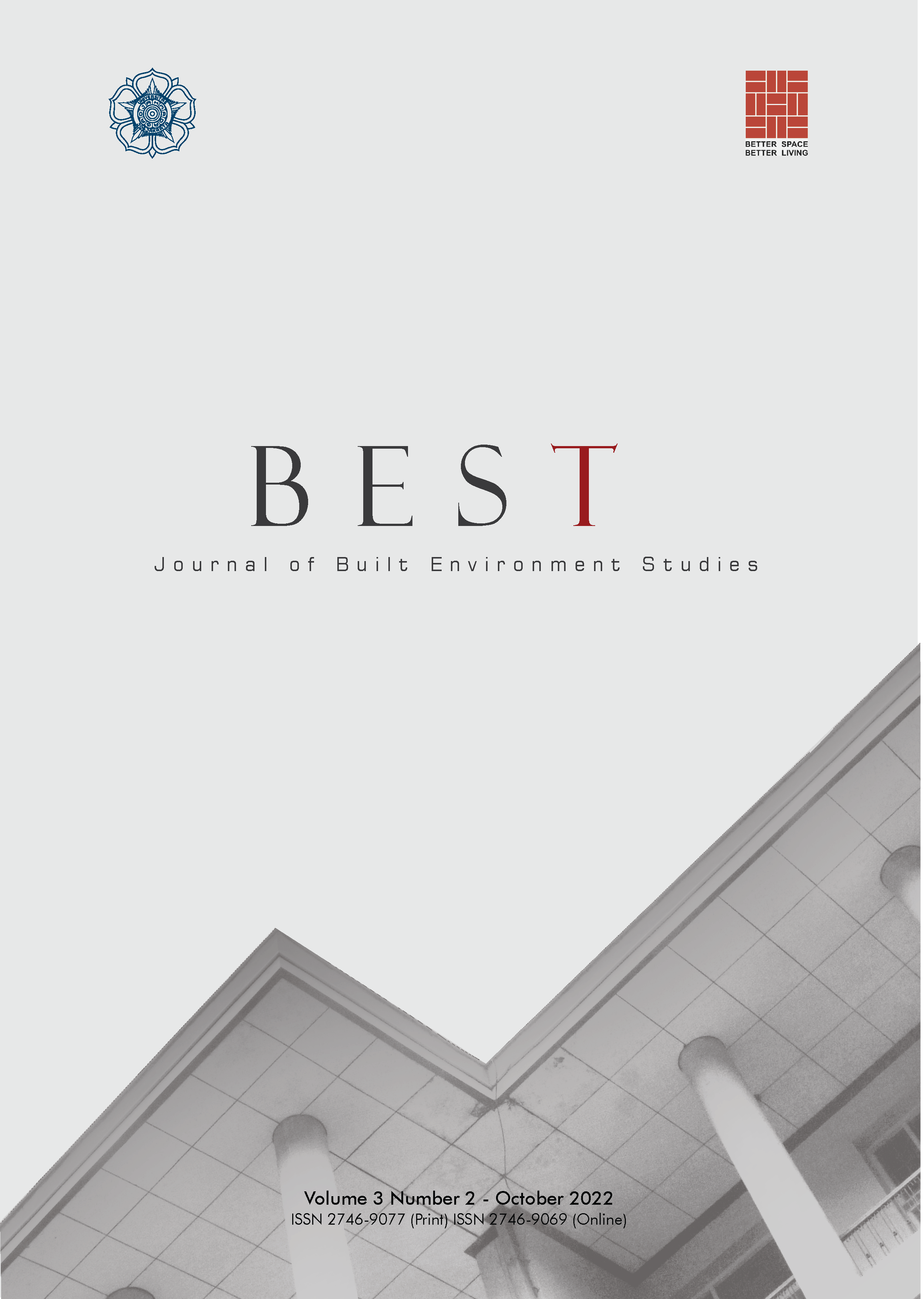Exploring Technical Policy Solution to Reduce Urban Heat Island in the City of Yogyakarta
Corresponding Author(s) : Belinda Duhita Puspita
Built Environment Studies,
Vol 3 No 2 (2022)
Abstract
UHIs are one of the challenges that has arisen from urbanization in Yogyakarta. These phenomena require the development of guidelines and planning policies which can manage the local climate. This research aims to formulate the spatial planning policies solution which use the concepts of urban sustainability and sustainable cooling to reduce UHI. Qualitative analysis was conducted through the analysis of the data from interviews on the multilevel governments based on spatial planning policies and the implementation. This spatial planning solution is divided in three solutions: technical policies, strategic policies, and partnership. The technical policies offer expanded vegetation area and living lab projects. Then the strategic policies consist of the cooling action plan and the incentive-disincentive mechanism. The last solution, partnership, is offered engagement with the public and collaboration with other cities or private parties. The spatial planning policies solutions which have high chance to reduce UHI, as determined from the interviews, is from technical policies and should be implemented by expanding green areas and forming urban living labs. The governments also offer three alternative solutions i.e. expanding green area combine with smart surface strategy, establishing cooling strategic plan, and penta-helix collaboration.
Download Citation
Endnote/Zotero/Mendeley (RIS)BibTeX
